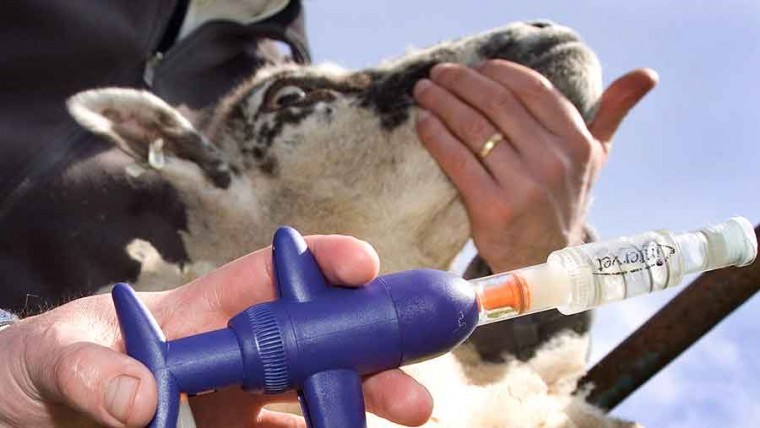In a press release, Zoetis says vaccination is a “must” to protect the free trading of stock if the disease arrives in the UK. But in its last bluetongue update on 10 April, DEFRA said the risk of midges infected with bluetongue coming into the UK from France was low.
South East Farmer spoke to Nick Pile, a large animal vet and director of the Cliffe Veterinary Group in Lewes, East Sussex to ask if he would be telling his farming clients to vaccinate against bluetongue. “No, not yet,” said Mr Pile. “I will be guided by what the Animal and Plant Health Agency and the relevant epidemiologists are saying before discussing the risk with individual clients.” If the risk level increases then our advice is likely to change.”
Last year, farmers were told there was “an 80% chance” of the disease being in the UK by September. “We sold a bit of vaccine but the uptake was by no means widespread,” Mr Pile remembered. “In the event, bluetongue did not come.” No one has bought bluetongue vaccine from us since September last year.
Mr Pile estimates that less than 10% of clients bought vaccine last year, the majority of them sheep clients. “The uptake was not high. But we have many clients, most with very few animals, and 90% of the animals are probably owned by 10% of our clients.”
In 2006 when bluetongue virus first arrived in northern Europe, Mr Pile pointed out that mortality rates were quite low, at five per cent in sheep. “But morbidity (illness) rates were very high.” Last year, many farmers vaccinated rams because if they had become ill in September, the virus would have affected their fertility for two to three months afterwards. “Sheep are more severely affected by the disease than cattle anyway.”
Zoetis said the number of bluetongue cases has continued to increase in France and move northwards, with trade restrictions now in place in Calais and Brittany. Carolyn Hogan, national vet manager at Zoetis, said as temperature rises and midge activity increases, the risk of a disease incursion into the UK is likely to increase again. “So it’s important to look at vaccinating cattle and sheep to ensure trade disruption is minimised in the event disease does make it to UK shores.”
By vaccinating stock ahead of the active midge season, which runs from May to October, farmers can mitigate the impact of trade restrictions should the virus enter the UK.
“A vaccination programme is a key part of the strategy to allow free trade to continue. If your flock or herd is already vaccinated, then in line with the necessary movement licences, this will help ensure the continued movement of animals without long delays,” Ms Hogan added.
The vaccines available for sheep and cattle are Zoetis’ Zulvac® 8 Ovis, and Zulvac® 8 Bovis, which protect against bluetongue serotype 8, the strain most prevalent in France and the one previously seen in the UK. MSD also makes a vaccine called Bluevac BTV8.




